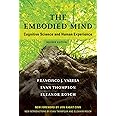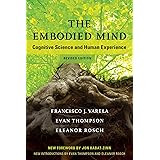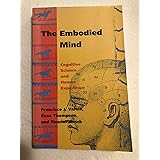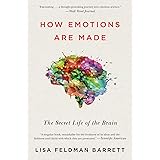
Enjoy fast, free delivery, exclusive deals, and award-winning movies & TV shows with Prime
Try Prime
and start saving today with fast, free delivery
Amazon Prime includes:
Fast, FREE Delivery is available to Prime members. To join, select "Try Amazon Prime and start saving today with Fast, FREE Delivery" below the Add to Cart button.
Amazon Prime members enjoy:- Cardmembers earn 5% Back at Amazon.com with a Prime Credit Card.
- Unlimited Free Two-Day Delivery
- Streaming of thousands of movies and TV shows with limited ads on Prime Video.
- A Kindle book to borrow for free each month - with no due dates
- Listen to over 2 million songs and hundreds of playlists
- Unlimited photo storage with anywhere access
Important: Your credit card will NOT be charged when you start your free trial or if you cancel during the trial period. If you're happy with Amazon Prime, do nothing. At the end of the free trial, your membership will automatically upgrade to a monthly membership.
Buy new:
-38% $21.60$21.60
Ships from: Amazon.com Sold by: Amazon.com
Save with Used - Good
$16.16$16.16
Ships from: Amazon Sold by: Giant Card Media

Download the free Kindle app and start reading Kindle books instantly on your smartphone, tablet, or computer - no Kindle device required.
Read instantly on your browser with Kindle for Web.
Using your mobile phone camera - scan the code below and download the Kindle app.

OK
The Tree of Knowledge: The Biological Roots of Human Understanding Paperback – March 31, 1992
Purchase options and add-ons
- Print length272 pages
- LanguageEnglish
- PublisherShambhala
- Publication dateMarch 31, 1992
- Dimensions6.57 x 0.6 x 9.2 inches
- ISBN-100877736421
- ISBN-13978-0877736424
Frequently bought together

Customers who viewed this item also viewed
Editorial Reviews
Review
"A book with great breadth and ambition . . . In the age of specialization, it is refreshing to come across a book with conceptual breadth and originality."— Contemporary Psychology
"An important milestone in our current efforts to recognize that science is not value-free, and that fact and value are inevitably tied together."—Morris Berman, author of Coming to Our Senses
"A beautiful and clearly written guide to thought and perception—something that, like life itself, we take for granted but do not understand. The authors were the pioneers and are now the authoritative figures in the science of cognition: their book is rewarding, thorough, and very readable to anyone curious about the mind and the way that it works."—James Lovelock, author of Gaia: A New Look at Life on Earth
"The ideas presented in this book are radical and exciting, disturbing and challenging. For the first time we are shown the outlines of a unified scientific conception of mind, matter, and life. The fruits of Maturana and Varela's Tree of Knowledge include the central insight that cognition is not a representation of the world 'out there,' but rather a 'bringing forth of the world through the process of living itself,' and the stunningly beautiful conclusion: 'We have only the world that we can bring forth with others, and only love helps bring it forth."—Fritjof Capra, author The Tao of Physics
About the Author
Product details
- Publisher : Shambhala; Revised edition (March 31, 1992)
- Language : English
- Paperback : 272 pages
- ISBN-10 : 0877736421
- ISBN-13 : 978-0877736424
- Item Weight : 2.31 pounds
- Dimensions : 6.57 x 0.6 x 9.2 inches
- Best Sellers Rank: #298,677 in Books (See Top 100 in Books)
- #60 in Phenomenological Philosophy
- #456 in Medical Cognitive Psychology
- #827 in Cognitive Psychology (Books)
- Customer Reviews:
About the author

Discover more of the author’s books, see similar authors, read author blogs and more
Customer reviews
Customer Reviews, including Product Star Ratings help customers to learn more about the product and decide whether it is the right product for them.
To calculate the overall star rating and percentage breakdown by star, we don’t use a simple average. Instead, our system considers things like how recent a review is and if the reviewer bought the item on Amazon. It also analyzed reviews to verify trustworthiness.
Learn more how customers reviews work on Amazon-
Top reviews
Top reviews from the United States
There was a problem filtering reviews right now. Please try again later.
The authors drill down to molecular biology and then carefully build upward their premise that we construct the worlds we live in out of language. Each of us exists inside a story we tell ourselves about the way the world is, and we are completely contained within that story. In that sense, we interact with other people through the way our stories talk to their stories. And the success of our relationships and the effectiveness with which we act in our world is dependent on how well we can recognize the stories of others and understand the nature of our own story.
This is good news, once we recognize it, because we are a narrative species. On my way to work in the morning, I am telling myself a story about the way I want my day to go: what I expect, what I want to accomplish, how I will confront the challenges along the way. The story I tell myself about my life has heroes and villains, goals and challenges, grand themes and petty foibles. The more we understand the soaring, rich, complex stories those around us are telling themselves, the more we can overcome misunderstandings, conflicts and cultural dissonance - the more, in a sense, we can construct a meta-story that serves us all as human beings.
This is not a quick and simple read, but it is so logically and carefully laid out that I never felt lost along the journey. It is a wonderful book to read in tandem with a friend, or as part of a book club. The discussion and the "aha!" experiences it prompts make for a lively exploration of its ideas. Part of the joy of "Tree of Knowledge" is its potential for promoting tolerance of those different from us, through recognition of what drives their story rather than through compromising our own values.
"ladylucero", in her review, noted that "Tree of Knowledge" is required reading in some American universities. I read that in the authors' native Chile it is even taught in high schools. This, I believe, is good news: the earlier in life we recognize how our individual stories drive our hopes and expectations, our fears and disappointments, the more capable we will be of living well with our fellow human beings.
I struggled with the first couple of sections only because biology is not my home base, but as I read I began to understand that the authors were working to show the reader how all organic life forms with a nervous system respond to their environments. What’s interesting about humans is that our nervous system is really a system of systems and therefore our responses to our environment are such that we can reshape that environment to meet whatever goal we have in mind.
Towards the end of the book, the authors drop this quote on the reader:
The business of living keeps no records concerning origins. All we can do is generate explanations, through language, that reveal the mechanism of bringing forth the world. By existing, we generate cognitive 'blind spots' that can be cleared only through generating new blind spots in another domain. We do not see what we do not see, and what we do not see does not exist. Only when some interaction dislodges us--such as being suddenly relocated to a different cultural environment--and we reflect upon it, do we bring forth new constellations of relation that we explain by saying that we were not aware of them, or that we took them for granted.
That whole kit bag of regularities proper to the coupling of a social group is its biologic and cultural tradition. Tradition is not only way to see and act, but also a way to conceal. Tradition consists of all those behaviors that in the history of a social system have become obvious, regular and acceptable. Since they do not require reflection to be generated, they are invisible unless they fail. This is when reflection steps in" (242).
This quote impressed me on a couple of professional levels. First, it made me think about the larger “traditions” that make up our educational system and also the more local “traditions” that exist within the district in which I teach. But you can move from there to think about the “traditions” that exist in your department and then moving further in, you can then think about the “traditions” that you live within in your classroom, in your pedagogy, and further, you can start to think about the “traditions” that your students come into your class with, and in thinking about the effectiveness of what you are doing or the goals that you have for the class but never seem to meet, you can pretty much assume that the real problem lies in these traditions, but which ones?
This is what systems thinking would call a “wicked problem” because it’s multi-headed, but its base it a solid foundation made up of beliefs, values and habits. You know, those damned "traditions".
Maturana and Varela’s book presents the reader with more insight than just this quote but I won’t go on at length because I’m just writing a "quick" review; however, I strongly recommend this book. I was in a meeting the other day with some colleagues and I was asked to share my grading strategy. When I announced that I let students determine their final grades, there was some pushback, but all of the questions asked were geared around what I did; no one asked me why I was doing what I was doing. In other words, no one was asking me about my beliefs and values, they only wanted a prescriptive answer from me, which tells you more about their beliefs and values than anything else. Next, it's onto Sufi Wisdom with Indris Shah. Wish me luck!










